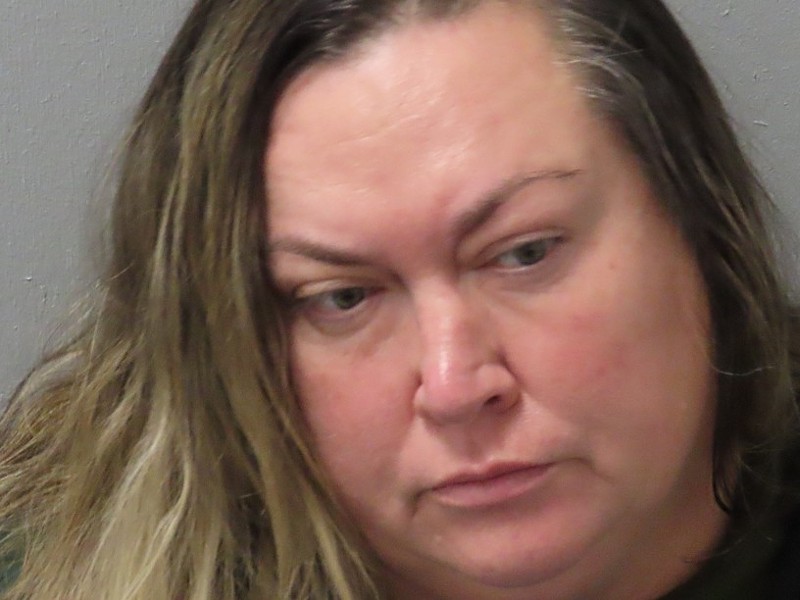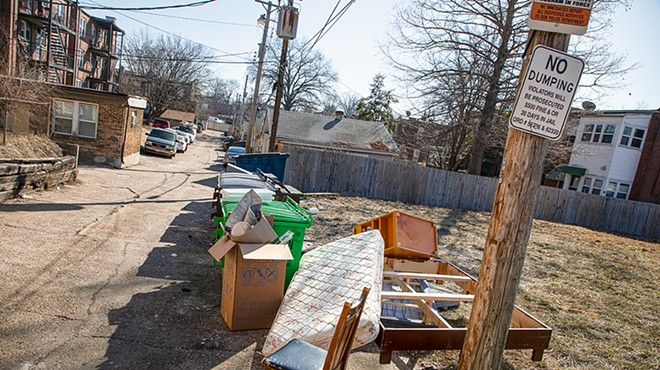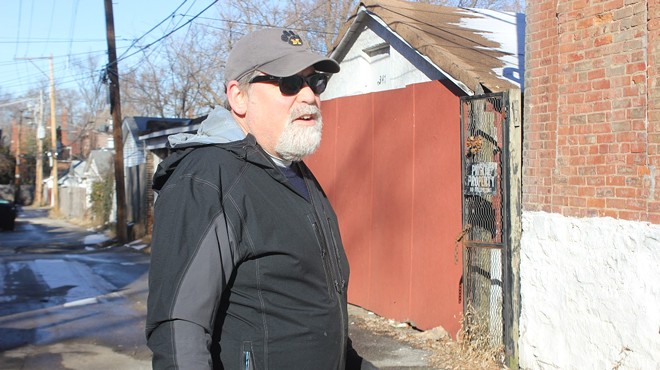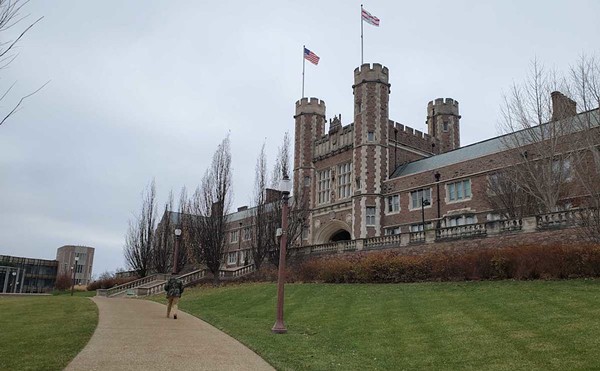
Dara Daugherty allegedly made a fortune off a very simple business model: illegally renting dozens of condemned properties around south St. Louis to people with nowhere else to go.
Her sprawling boarding house operation, which encompassed 39 ramshackle houses, filled Daugherty’s pockets to the tune of $40,000 per month, according to a lawsuit the city filed against her in January.
Many of Daugherty’s tenants suffered from mental illness for most of their lives, and received Social Security Income disability checks of nearly $1,000 per month.
Daugherty, notorious for her bullying demeanor, would take more than half that amount in rental payments for herself, according to tenants interviewed.
But in 2021, at the height of the COVID-19 pandemic, Daugherty found a new revenue stream: the federally funded State Assistance For Housing Relief, or SAFHR program. Missouri lawmakers had set it up to ensure that low- and moderate-income Missouri tenants kept a roof over their heads while their landlords could remain in business.
The money for it came from the Emergency Rental Assistance program administered by the U.S. Treasury Department.
Two of the limited liability companies that Daugherty had created, and which owned big chunks of her slum empire, received a total of $18,750 in SAFHR payments, according to records obtained by the Riverfront Times from the Missouri Housing Development Commission, which oversaw the SAFHR program.
The SAFHR payments came in the form of two allocations: $8,750 to AAA Sunshine Investments LLC; and $10,000 to Sunshine Investments, commission records show.
In addition, Keith Mack, Daugherty’s former romantic partner and one of her co-defendants in the city lawsuit, received another $5,000 in SAFHR payments, commission records show.
Daugherty did not return repeated phone calls to her cell phone.
Brian Vollenweider, a commission spokesman, did not return calls seeking comment.
Housing experts interviewed back in January told the RFT that it is highly unlikely that Daugherty could have obtained the SAFHR funds legally, since housing people in condemned properties would automatically invalidate any lease or other contract.
“I don’t think that could be kosher for the simple fact that already doing that rental agreement is an illegal contract,” said Glenn Burleigh, who, until his recent exit, was a longtime counselor for Metropolitan St. Louis Equal Housing and Opportunity Council, or EHOC.
Mack also did not return repeated phone calls.
During a phone interview in late January, Mack acknowledged fathering three young children with Daugherty, but says their romantic relationship ended five years ago and they no longer do business together.
Mack also declared he is not being fairly portrayed in the media.
”I’m being railroaded,” he said.
Yet records suggest Daugherty and her associates had success in garnering tax dollars for what the city has said was an illegal operation.
In one instance uncovered by the RFT, Andrea Erhart, a south city woman with a long history of mental illness, received help from Daugherty in 2021 to fill out an application for a year’s worth of rental assistance from SAHFR, or a total of $10,000, for her Daugherty-owned house on Texas Avenue.
Erhart’s application was granted in full, even though the house was condemned and considered uninhabitable, according to records from both the city and the woman’s caseworker with Places For People, a non-profit agency that helps people with mental health issues find treatment and housing.
On April 4, 2023, a Places for People caseworker wrote that the woman’s address “is considered a place not meant for habitation. This is due to severe structural issues, mold and rodents.”
State Rep. Bill Owen, R-Springfield, has long been a sharp critic of the SAFHR program and its apparent lack of state oversight.
News that SAFHR funds were being funneled to a slumlord like Daugherty led Owen to call for state lawmakers to take the first-ever hard look at SAFHR.
“And say, ‘Hey, we need to look into this,’” Owen says.
Missouri House Rep. Ingrid Burnett, D-Kansas City, said she wants to refer the matter of SAFHR oversight to the House Joint Committee On Government Accountability.
The news about Daugherty’s apparent misuse of SAFHR funds made the need for oversight more urgent than ever, according to Burnett.
“Obviously, somebody dropped the ball on accountability there,” Burnett says. “Again, it’s the lack of oversight.”
No one, not the commission, not lawmakers, really knows how SAFHR funds are being used, she said.
”So they think it’s all working, when it’s not,” Burnett says.
Subscribe to Riverfront Times newsletters.
Follow us: Apple News | Google News | NewsBreak | Reddit | Instagram | Facebook | Twitter | Or sign up for our RSS Feed









